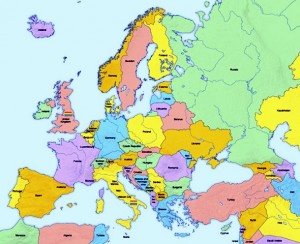In a special issue of National Wildlife magazine (February-March 2020), the National Wildlife Federation reported on one of the success stories following the April 2010 catastrophe that was the Deepwater Horizon explosion. Along the Louisiana coastline of the Gulf of Mexico is a narrow sandy barrier called the Caminada Headland. The Headland was already losing 35 feet per year due to storms and rising sea levels when Deepwater Horizon occurred. Now, thanks to a $216 million portion of the $16.5 billion settlement between British Petroleum, its drilling partners and the US government, the Headland is changing dramatically for the better.
In this time of rampant partisanship in Washington, it is instructive and inspiring to look back only a few years to trace how this “good news story” came about.  The story’s actors include a former female Louisiana Senator, a current male Alabama Senator, the House of Representatives, the Senate, and former President Barack Obama. The legislative action is known as the RESTORE Act, which stands for “Resources and Ecosystems Sustainability, Tourist Opportunities, and Revived Economies of the Gulf Coast States,” introduced on July 21, 2011, by former Senator Mary Landrieu (D-La.) and current Senator Richard Shelby (R-Ala.). The Act was supported by both environmental and business organizations.
The story’s actors include a former female Louisiana Senator, a current male Alabama Senator, the House of Representatives, the Senate, and former President Barack Obama. The legislative action is known as the RESTORE Act, which stands for “Resources and Ecosystems Sustainability, Tourist Opportunities, and Revived Economies of the Gulf Coast States,” introduced on July 21, 2011, by former Senator Mary Landrieu (D-La.) and current Senator Richard Shelby (R-Ala.). The Act was supported by both environmental and business organizations.
On a bipartisan vote of 76-22, the Senate passed the Act as an amendment to the transportation bill on March 14, 2012. Then, the House passed the full transportation bill 373-52 and the Senate followed, 74-19, both on June 29, 2012. Obama signed the bill into law on July 6, 2012.
Here is some of the vital work that has taken place to complete the Caminada Headland project, according to the National Wildlife article:
- Moving over “10 million tons of sand from offshore shoals to the peninsula.”
- Restoration by state engineers of “more than 13 miles of uninhabited beaches;” those beaches have been built up almost five feet above sea level.
- The planting of 195,000 native plants like sea oats and bitter panicum in order to prevent erosion.
- The installation of 72,000 feet of fencing.
- The enhancement of “800 acres of vital habitat for threatened piping plovers, nesting least terns and other species.”
 One truism of American culture is that we tend to be fairly good at responding to crises but less responsive to address chronic, ongoing situations. For instance, Americans donate generously to the Red Cross and other nonprofits when communities suffer from natural disasters and mass shootings. However, long-term problems that affect millions of us – poverty, homelessness, hunger, income inequality, systemic racism, and many other challenges – have remained stubbornly persistent (and have actually gotten worse) for decades.
One truism of American culture is that we tend to be fairly good at responding to crises but less responsive to address chronic, ongoing situations. For instance, Americans donate generously to the Red Cross and other nonprofits when communities suffer from natural disasters and mass shootings. However, long-term problems that affect millions of us – poverty, homelessness, hunger, income inequality, systemic racism, and many other challenges – have remained stubbornly persistent (and have actually gotten worse) for decades.
The RESTORE Act is one example of a response to a human-made disaster and tragedy that was undertaken by our elected representatives at the national level and supported by citizens from many social and political perspectives. The result of this legislative response – the success story of the Caminada Headland that improves life not only for individuals in at least two states but also for a precious body of water and for our fellow plant and animal creatures – is the positive impact of laws passed at the federal level. This is important because it embodies a truth carried out on a regular basis by most of our sister advanced democratic nations, nations that are often pejoratively castigated as “socialist.”  We Americans must contemplate our national mentality, priorities, goals and values in light of what works, not solely, exclusively or impulsively by worn-out, prejudicial and frankly ignorant ideologies. If we can enact powerful legislation that responds effectively to a disaster like Deepwater Horizon (and if we as a nation were able to put human beings on the moon, another type of response to a perceived crisis now over 50 years ago), we can find solutions to our seemingly intractable socio-economic problems. As we have pointed out repeatedly in past posts (check out posts especially in the Present category), we can do this in part by learning from our successful sister nations.
We Americans must contemplate our national mentality, priorities, goals and values in light of what works, not solely, exclusively or impulsively by worn-out, prejudicial and frankly ignorant ideologies. If we can enact powerful legislation that responds effectively to a disaster like Deepwater Horizon (and if we as a nation were able to put human beings on the moon, another type of response to a perceived crisis now over 50 years ago), we can find solutions to our seemingly intractable socio-economic problems. As we have pointed out repeatedly in past posts (check out posts especially in the Present category), we can do this in part by learning from our successful sister nations.
Resource
Wexler, Mark. “Restoring a Ravaged Coast,” National Wildlife, Vol. 58, No. 2 (February-March 2020) 20-27.
